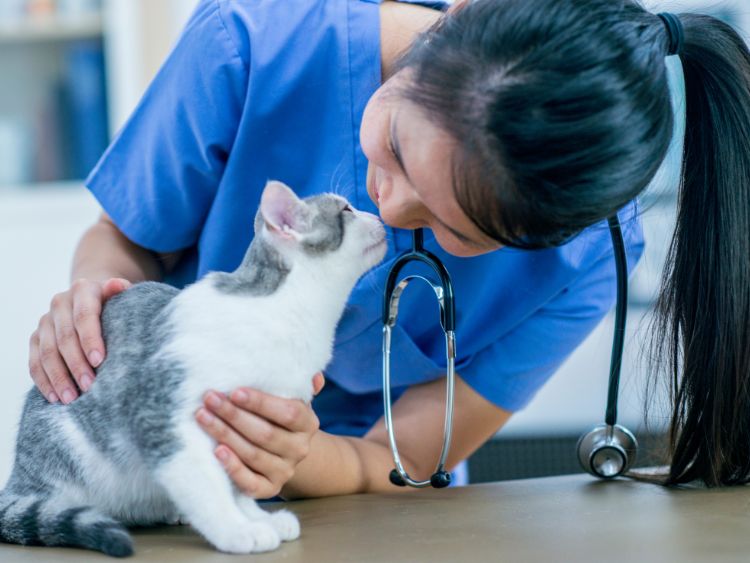Hey there, pet lovers! Ever found yourself in a tizzy trying to get timely veterinary care for your furry friend? Whether you’re a seasoned pet owner or a newbie, ensuring your pet has access to top-notch vet care can sometimes feel like navigating a labyrinth. But don’t worry; we’re here to simplify things for you. In this comprehensive guide, we’ll explore all you need to know about access vet care, why it’s crucial, and how to ensure your beloved pets get the best treatment available.
Why Access Vet Care is Important
First things first, let’s tackle the big question: why is access to vet care so darn important? Well, just like us humans, our pets need regular medical check-ups, preventive care, and sometimes emergency services. Without access to quality vet care, minor health issues can escalate into major problems. It’s not just about emergencies either; regular vet visits can help detect and prevent potential health problems early, ensuring your pet leads a long, healthy life.
Preventive Care: The Key to a Healthy Pet
Preventive care is the cornerstone of veterinary medicine. Regular check-ups, vaccinations, and screenings can catch health issues before they become serious. This not only saves you money in the long run but also ensures your pet stays healthy and happy. Preventive care includes:
- Vaccinations: Keeping diseases like rabies, parvo, and distemper at bay.
- Dental Care: Regular cleanings to prevent gum disease and tooth loss.
- Weight Management: Preventing obesity-related issues.
- Parasite Control: Protecting against fleas, ticks, and worms.
Emergency Care: When Every Second Counts
Let’s face it, emergencies happen. And when they do, having access to immediate vet care can make all the difference. From accidental poisonings to injuries, emergency vet care is essential for those unexpected moments when your pet needs urgent medical attention.
Finding the Right Vet
Alright, so now we know why vet care is crucial. But how do you find the right vet? It’s not just about the closest clinic; you need someone who understands your pet’s needs and provides quality care.
Research and Recommendations
Start by doing some research. Look for vets in your area and check their reviews online. Websites like Yelp and Google Reviews can give you a good idea of what to expect. Additionally, ask fellow pet owners for recommendations. Personal experiences can be incredibly valuable when choosing a vet.
Visit the Clinic
Once you’ve shortlisted a few options, visit the clinics. A personal visit allows you to check the facilities, meet the staff, and see how they handle pets. Take note of the clinic’s cleanliness, the staff’s friendliness, and how they interact with animals.
Ask Questions
Don’t be shy to ask questions. Here are a few to get you started:
- What are their hours of operation?
- Do they offer emergency services?
- What are their fees for regular check-ups and emergency care?
- Do they have specialists for specific health issues?
- Are they accredited by relevant veterinary organizations?
Understanding Veterinary Services
Veterinary services go beyond just treating illnesses. Understanding the range of services offered can help you make informed decisions about your pet’s care.
General Veterinary Services
These include routine check-ups, vaccinations, dental care, and preventive treatments. Most vet clinics offer these services, which are essential for maintaining your pet’s health.
Specialized Care
Sometimes, your pet might need specialized care for specific health issues. This could include dermatology, cardiology, oncology, or orthopedic care. Ensure your chosen vet clinic either provides these services or can refer you to a specialist.
Emergency Services
As mentioned earlier, having access to emergency services is crucial. Ensure your vet clinic offers 24/7 emergency care or has a partnership with an emergency animal hospital.
Making Vet Visits Stress-Free
Vet visits can be stressful for both pets and owners. But with a bit of preparation, you can make the experience smoother.
Before the Visit
- Schedule Wisely: Choose a time when the clinic is less busy.
- Acclimate Your Pet: Get your pet used to car rides and being handled.
- Prepare Your Questions: Write down any concerns or questions you have.
During the Visit
- Stay Calm: Your pet can pick up on your anxiety. Stay calm and reassuring.
- Bring Comfort Items: A favorite toy or blanket can help soothe your pet.
- Communicate Clearly: Discuss your concerns openly with the vet.
After the Visit
- Follow Instructions: Adhere to any care instructions given by the vet.
- Monitor Your Pet: Keep an eye on your pet for any changes or reactions.
- Plan for Follow-Ups: Schedule any necessary follow-up appointments.
Cost of Vet Care
One of the major concerns for pet owners is the cost of vet care. Understanding the costs involved and planning accordingly can help manage expenses.
Regular Check-Ups
Routine check-ups are generally affordable and can save you money in the long run by preventing serious health issues. These visits typically include a physical exam, vaccinations, and preventive treatments.
Emergency Care
Emergency care can be costly. It’s essential to have a financial plan in place for unexpected medical expenses. Pet insurance can be a valuable tool in managing these costs.
Pet Insurance
Pet insurance helps cover the cost of veterinary care. Different plans offer varying levels of coverage, from basic accident and illness plans to comprehensive wellness plans. Research and choose a plan that suits your needs and budget.
FAQs about Access Vet Care
How often should I take my pet to the vet?
It depends on your pet’s age and health. Generally, annual check-ups are recommended for healthy adult pets. Puppies, kittens, and senior pets may require more frequent visits.
What should I do if my pet needs emergency care?
If your pet needs emergency care, contact your vet clinic immediately. If they don’t offer emergency services, they can refer you to an emergency animal hospital.
How can I make vet visits less stressful for my pet?
Acclimate your pet to car rides and being handled. Bring comfort items like their favorite toy or blanket. Stay calm and reassuring during the visit.
What are the most common pet health issues?
Common health issues include dental disease, obesity, skin problems, and parasites. Regular vet visits and preventive care can help manage these issues.
Is pet insurance worth it?
Pet insurance can be worth it if you want to manage unexpected medical expenses. Research different plans and choose one that fits your needs and budget.
Summary
Access vet care is essential for ensuring your pet’s health and well-being. From regular check-ups and preventive care to emergency services, having a reliable vet is crucial. Do your research, visit clinics, and ask questions to find the right vet for your pet. Understand the range of services offered and plan for the costs involved. With the right care, you can ensure your furry friend leads a long, healthy, and happy life.
Authoritative Links
For more information on vet care, check out these resources:
- American Veterinary Medical Association: https://www.avma.org
- PetMD: https://www.petmd.com
- ASPCA: https://www.aspca.org
- VCA Animal Hospitals: https://www.vcahospitals.com
- Banfield Pet Hospital: https://www.banfield.com
There you have it, folks! A comprehensive guide to accessing vet care for your beloved pets. By following these tips and guidelines, you’ll be well-equipped to ensure your furry friends receive the best possible care.



